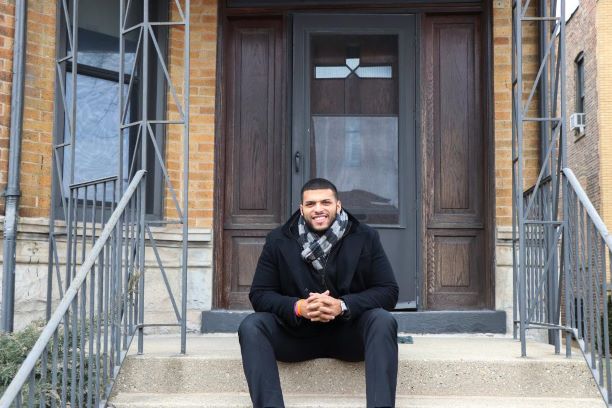
Homelessness and housing insecurity among college and university students is a national issue. The Free Application for Federal Student Aid (FAFSA) estimates 58,000 college students are facing homelessness. For example, DePaul University estimates that 50 students are homeless or housing insecure in a given academic quarter on their campus. Abraham Morris with DePaul’s Dax Program discusses this disturbing trend.
What services does the Dax Program offer? Who are your clients?
To address the issue of college homelessness in Chicago, Depaul USA established the Dax Program in 2014-2015. This innovative program provides housing, case management, counseling referrals, transportation, food, textbook assistance, and educational reimbursements to homeless or housing insecure college students. The program is designed to provide supports to move students towards graduation, finding employment, and securing permanent safe housing.
How many students does the program serve monthly or annually?
The Dax Program has assisted 37 students. It has housed a total of 23 students in a variety of accommodations including host-homes (volunteers who open their homes to students), rented apartments, and donated dorm rooms. In October 2017, Depaul USA opened the first Dax House.
Why did you become involved with the program?
I moved to Chicago to pursue a Master of Arts degree in Public Policy and was looking for an opportunity to serve youth young adults. I heard about the Depaul USA’s Dax director position and after careful research, I learned that Depaul USA’s mission mirrored my own. The opportunity reminded me of a personal experience during my freshman year of college. The first week of my freshman year, I received an email from the Bursar’s Office stating I had an outstanding balance on my account. An advisor confirmed that I had an outstanding balance of nearly $1,300.00. I was sure that my financial aid would cover all costs. There was no chance of receiving family assistance. I was sure that my only option was to drop out of college. Luckily, I received a call from the Bursar’s Office and the representative informed me that there was a mistake on my account and asked if I could come to the office to pay 35 cents. Many students never get that good news from the Bursar’s Office. Most of the time, students are forced to decide whether to eat or buy textbooks. Many sleep on friends’ couches to save money on room and board and take semesters off of school to pay for tuition; most of the time these kinds of challenges lead to students dropping out. Some students end up with massive debt and no college degree.
In your opinion, what policies or programming needs to be put in place to ensure students are focusing more on their studies and not a place to lay their heads?
I believe the problem is twofold. First, higher education is no longer affordable. Postsecondary education has become a highly competitive market, which has severely increased the cost of college tuition. The increase has drastically impacted students from low-income families and likely increased income inequality. In addition, there are gaps and systemic errors within the FAFSA that prevents students from receiving the necessary aid to attend and succeed in higher education. Second, I believe there needs to be a system within higher education to detect students who are homeless or at risk of homelessness.
For more information: us.depaulcharity.org
















